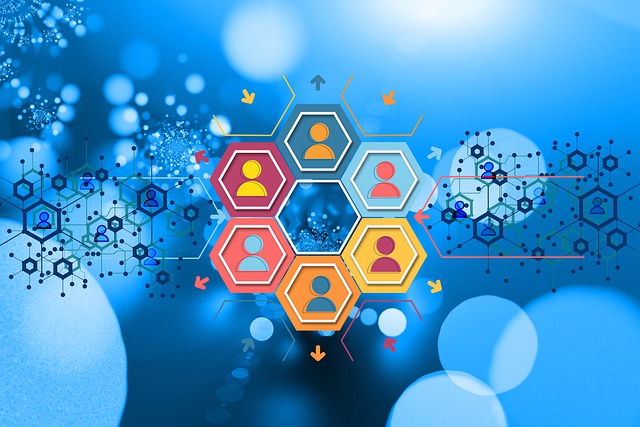Artificial Intelligence: Types and Applications in Business

Table of Content
- What is Artificial Intelligence?
- Facts About AI in 2024
- Types of Artificial Intelligence
- Benefits Of AI In Business Applications
- Top Applications of Artificial Intelligence in 2024
- Conclusion
What is Artificial Intelligence?
Artificial Intelligence (AI) involves simulating human intelligence in machines, programming them to think and act like humans. It encompasses cognitive abilities such as learning, reasoning, problem-solving, perception, and language comprehension.
AI is a methodology for making computers, computer-controlled robots, or software with human-like intelligence. This is achieved by studying patterns in the human brain and analyzing cognitive processes. The insights gained from these studies contribute to the development of intelligent software and systems.
Facts About AI in 2024
- The global AI market is worth $150.2 billion and is projected to rise as 2024 approaches its apex.
- The AI market is expected to grow by 36.8% from 2023 to 2030 at CAGR.
- The AI market is expected to grow twentyfold by 2030.
- Around 97 million people are expected to work in AI by 2025.
- The AI market in the US is expected to reach $299.54 billion by 2026.
- Due to the adoption of AI, the Global GDP rate will grow by $15.7 trillion by 2030.
- 2024 is set to see the rise of 8.4 billion AI-powered digital voice assistant units which exceeds the total global population.
- Gartner estimates that about 80% of enterprises will have used GenAI APIs and models by 2026 and/or deployed Generative AI applications in production environments.
- 42% of businesses reported that they plan to use AI in the future.
Types of Artificial Intelligence
Artificial Intelligence can be classified into two main types based on capabilities and functionality.
There are three types of Artificial Intelligence-based on capabilities –
- Narrow AI
- General AI
- Strong AI
What is Narrow AI?
Narrow AI, also known as Weak AI, refers to artificial intelligence systems that are designed and trained for a specific task or a narrow set of tasks. Unlike General AI, which aims to possess human-like cognitive abilities across various domains, Narrow AI is focused on excelling in a dedicated function. These systems are proficient and highly effective within their predefined scope but lack the broad versatility and understanding that characterize human intelligence.Narrow AI applications are becoming more prevalent in our daily lives, driven by advancements in machine learning and deep learning methods. As these technologies progress, we encounter increasingly sophisticated and specialized AI systems seamlessly integrated into various aspects of our day-to-day experiences.
Here are some examples of Narrow AI applications:
Virtual Personal Assistants:
- Examples: Siri, Google Assistant, Amazon Alexa.
- Task: Perform voice-activated tasks, answer queries, set reminders.
Image and Speech Recognition:
- Examples: Facial recognition software, speech-to-text applications.
- Task: Identify and interpret visual or auditory data.
Recommendation Systems:
- Examples: Netflix recommendations, Amazon product recommendations.
- Task: Analyse user preferences to suggest personalized content or products.
Language Translation Services:
- Examples: Google Translate, Microsoft Translator.
- Task: Translate text or speech from one language to another.
Autonomous Vehicles:
- Examples: Self-driving cars, drones.
- Task: Navigate and make decisions based on real-time data.
Fraud Detection:
- Examples: Credit card fraud detection systems.
- Task: Analyse patterns to identify potentially fraudulent activities.
Medical Diagnosis Tools:
- Examples: AI-assisted diagnostic software.
- Task: Analyze medical data to assist in disease diagnosis.
Chatbots:
- Examples: Customer service chatbots, virtual assistants.
- Task: Engage in conversations and provide information or assistance.
What is General AI?
General AI, or Strong AI, refers to a type of artificial intelligence that possesses the ability to understand, learn, and apply knowledge across a broad range of tasks—similar to human intelligence. Unlike Narrow AI, which is designed for specific functions, General AI aims to exhibit versatility in problem-solving and cognitive abilities, mirroring the adaptability and comprehensive understanding characteristic of human minds.
The concept of General AI involves creating machines or systems that can perform any intellectual task that a human being can. This includes tasks such as reasoning, learning from experience, understanding natural language, and adapting to different environments. As of now, achieving General AI remains largely theoretical, and no system has demonstrated the breadth of cognitive capabilities inherent in human intelligence on a large scale.
Here are some examples of General AI applications:
- IBM’s Watson. Watson and other supercomputers are capable of calculations that the average computer can’t handle. They combine their immense computing power with AI to carry out previously impossible science and engineering tasks, such as modeling the Big Bang theory of the birth of the universe or the human brain.
- Expert systems. These AI-based systems mimic human judgement. They can recommend medicine based on patient data and predict molecular structure, for example
- Self-driving cars. These AI-guided vehicles recognize other vehicles, people and objects on the road and adhere to driving rules and regulations.
- ROSS Intelligence. ROSS is a legal expert system that is also called the AI attorney. It can mine data from about 1 billion text documents, analyze the information and provide precise responses to complicated questions in less than three seconds.
- AlphaGo. This is another example of narrow intelligence that excels at a specific type of problem solving. AlphaGo is a computer program that can play the board game Go. Go is a complex game that is difficult for humans to master. In 2016, AlphaGo beat the world champion Lee Sedol in a five-game match.
- Language model Generative Pre-trained Transformer. GPT-3 and GPT-4 are release versions of a program from OpenAI that can automatically generate human language. The technology is consistently able to emulate general human intelligence. In some cases, the text is indistinguishable from human output; however, the AI output is often flawed.
- Music AIs. Dadabots is an AI algorithm that, given a body of existing music, can generate a stream of its own approximation of that music.
Super AI (strong AI)
Super AI” typically refers to a hypothetical advanced form of artificial intelligence (AI) that surpasses human intelligence across a wide range of cognitive abilities. It’s often associated with the idea of artificial general intelligence (AGI), which refers to AI systems that can understand, learn, and apply knowledge in a way that is indistinguishable from human intelligence.
Source: Difference Between
Benefits Of AI In Business Applications
Artificial Intelligence (AI) has become a trans formative force in various industries, offering numerous benefits in business applications. Here are some key advantages of integrating AI into business processes:
Increased Efficiency and Automation:
- AI enables the automation of repetitive tasks, allowing employees to focus on more strategic and complex activities.
- Automated processes lead to faster decision-making and increased operational efficiency.
Data Analysis and Insights:
- AI systems can analyze vast amounts of data quickly and accurately, providing valuable insights for informed decision-making.
- Predictive analytics and machine learning algorithms help identify patterns, trends, and potential opportunities or risks.
Customer Service and Support:
- AI-powered chatbots and virtual assistants provide 24/7 customer support, addressing queries and resolving issues in real-time.
- Natural language processing (NLP) enhances the interaction between AI systems and customers.
Cost Reduction:
- Automation and efficiency improvements brought by AI can lead to significant cost reductions in various business operations.
- Predictive maintenance, for example, can reduce downtime and maintenance costs for machinery and equipment.
Fraud Detection and Security:
- AI algorithms can detect unusual patterns and behaviors that may indicate fraud or security breaches.
- Advanced security measures, such as facial recognition and biometric authentication, enhance data protection.
Supply Chain Optimization:
- AI helps optimize supply chain processes by predicting demand, managing inventory, and streamlining logistics.
- Predictive analytics ensures that businesses can adjust their supply chain strategies based on market trends and fluctuations.
Employee Productivity:
- AI tools can assist employees in their daily tasks, providing insights, automating routine activities, and facilitating collaboration.
- Virtual assistants and smart scheduling tools help manage workloads and improve overall productivity.
Competitive Advantage:
- Businesses that adopt AI early gain a competitive edge by leveraging technology to innovate and adapt quickly to market changes.
- AI-driven insights enable companies to make data-driven decisions that can outpace competitors.
Innovation and Research:
- AI accelerates innovation by facilitating research and development processes, particularly in industries like healthcare, finance, and manufacturing.
- Machine learning models contribute to breakthroughs in various scientific fields.
Scalability:
- AI systems can handle large volumes of data and tasks, allowing businesses to scale their operations without proportional increases in workforce.
Some real-world examples of AI include:
- Siri, Alexa and other smart assistants
- Self-driving cars
- Robo-advisors
- Conversational bots
- Email spam filters
- Netflix/Facebook/YouTube recommendations
Top Applications of Artificial Intelligence in 2024
Artificial Intelligence (AI) has diverse applications across various business sectors, driving innovation and efficiency. Here are some notable applications of AI in business:
AI in E-Commerce
AI is revolutionizing the e-commerce landscape, reshaping both business operations and the online shopping experience for customers. Through various applications, artificial intelligence is empowering e-commerce platforms in several ways.
One significant impact is seen in personalized user experiences. AI enables e-commerce platforms to tailor recommendations based on individual interests, creating a more personalized and engaging shopping journey for customers. Advanced algorithms and machine learning contribute to optimizing pricing and inventory management, ensuring businesses make data-driven decisions.
The integration of AI-powered chatbots and virtual assistants has proven instrumental in enhancing customer assistance and engagement. These technologies provide real-time support, contributing to an overall improved purchasing experience by addressing customer queries and needs promptly.
Moreover, AI plays a crucial role in data analytics for e-commerce companies. By leveraging AI, businesses gain valuable insights into consumer behavior and market trends. This data-driven approach empowers e-commerce companies to make informed decisions and adapt their strategies in response to changing market dynamics.
As technology continues to advance, the role of AI in e-commerce is expected to expand further. The ongoing development of creative solutions will streamline operations, increase efficiency, and contribute to higher levels of consumer satisfaction within the online retail sector. The evolving synergy between AI and e-commerce promises innovative solutions that will shape the future of online shopping.
AI in Robotics
AI plays a significant role in the field of robotics, providing advanced capabilities for real-time decision-making and autonomous operation. Robots controlled by AI utilize real-time alerts to sense obstacles in their path, allowing them to dynamically plan their journeys. This technology finds application in various sectors, including:
- Transportation in Hospitals, Factories, and Warehouses:
- AI-powered robots are employed for the efficient movement of goods within hospitals, factories, and warehouses.
- These robots navigate through spaces, avoiding obstacles and optimizing their routes for the seamless transportation of goods.
- Cleaning of Workplaces and Large Buildings:
- In cleaning applications, AI-equipped robots can autonomously navigate and clean large buildings and workplaces.
- They use sensors and AI algorithms to identify areas that require cleaning and optimize their cleaning routes.
- Inventory Control:
- AI in robotics is instrumental in managing inventories efficiently.
- Robots equipped with AI can automate inventory checks, monitor stock levels, and facilitate accurate record-keeping in warehouses and manufacturing environments.
Furthermore, AI’s impact extends beyond robotics into mobile app development, revolutionizing the industry in various ways:
- Enhanced User Experiences:
- AI algorithms contribute to personalized and intuitive user experiences in mobile apps.
- Features such as recommendation engines and personalized content delivery are powered by AI, tailoring the app experience to individual users.
- Task Automation:
- AI automates repetitive tasks within mobile apps, improving efficiency and freeing up human resources for more complex activities.
- Automation in areas like customer support and data processing enhances app functionality.
- Optimization of App Performance:
- AI is utilized to optimize the performance of mobile apps by analyzing user behavior and making real-time adjustments.
- This includes optimizing loading times, streamlining navigation, and ensuring the app adapts to user preferences.
AI in Banking Sector
The future of banking lies in Artificial Intelligence (AI), harnessing the capabilities of advanced data analytics to combat fraudulent transactions and enhance compliance. AI algorithms empower rapid and effective anti-money laundering operations, condensing processes that traditionally took hours or days into a matter of seconds.
AI plays a crucial role in enabling banks to handle massive volumes of data at unprecedented speeds, facilitating the extraction of valuable insights. Features such as AI bots, automated payment advisers, and frameworks for detecting biometric fraud contribute to elevating service quality for a broader customer base.
The cumulative effect of these advancements translates to higher sales, lower operational costs, and an increase in overall earnings for banks. As AI continues to evolve, its integration into the banking sector not only strengthens security measures and compliance but also improves operational efficiency, offering financial institutions the potential for innovation and growth in the dynamic landscape of modern finance.
Conclusion
Many emerging businesses are experiencing rapid growth and success due to effective strategies and plans. Artificial Intelligence (AI) plays a pivotal role in this achievement. In contrast to previous times, operations have become more streamlined as machines, powered by AI, handle a significant portion of our tasks.
PangaeaX can help you identify and leverage AI opportunities in your field by linking you up with the world’s best freelance data scientists. Find the most capable resources to drive your data analytics or machine-learning based initiatives.
Get your data results fast and accelerate your business performance with the insights you need today.



